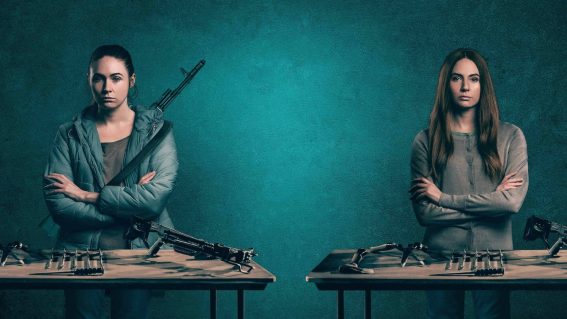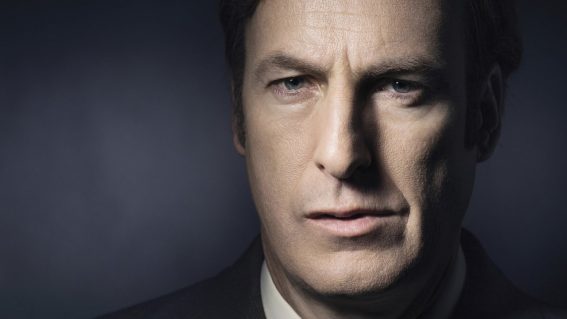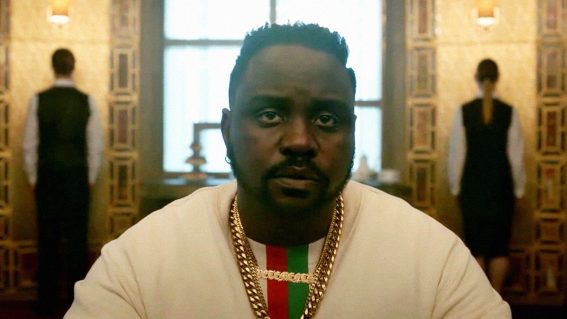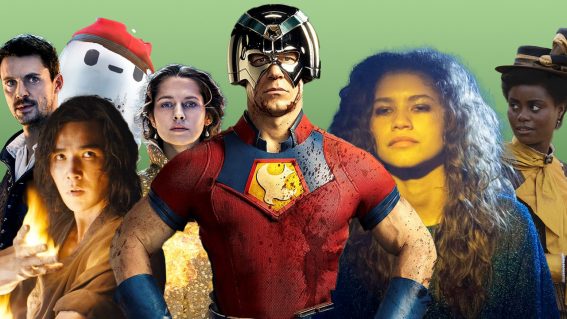New comedy series Dollface celebrates the power of friendship
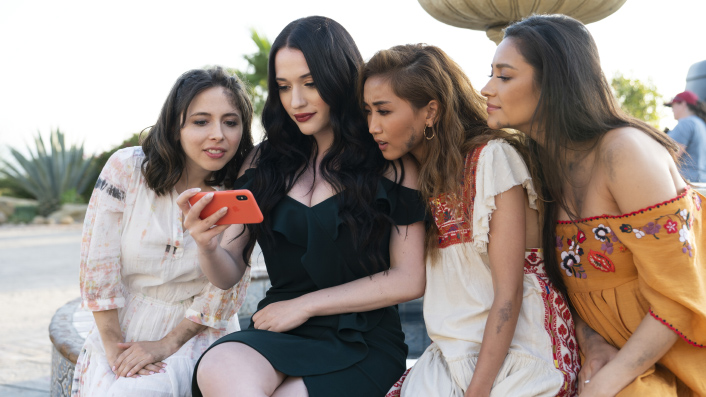
A new show streaming on Neon recalibrates traditional TV’s romance vs. friendship priorities. Dollface stars 2 Broke Girls‘ Kat Dennings, recently broken up and trying to reconnect with some friends all-but-ignored during her relationship. Dominic Corry is impressed with the show’s view about the importance of platonic friendship, and finds plenty to enjoy from Dollface‘s cast and comedic style.
Scripted television has long propagated the notion that no human being is worth anything unless they are in a romantic relationship. Friendship has long been portrayed on television, often amusingly so, but the predominant messaging from the vast majority of dramatic and comedic TV shows, is that ultimately, you aren’t fulfilled and you don’t count until you have a boyfriend or a girlfriend.
Even the TV called… Friends supported the idea that friendship is all good and well, and even fun, but until you’re locked and loaded with a partner, you ain’t shit.
See also
* All new movies & series on Neon
* Everything new to Neon in August
* The best comedy films of last decade
Providing a welcome and wonderful contrast to this prevailing dynamic is Dollface, a new comedy that treats platonic friendships as being equally, if not more, important to a person’s ultimate wellbeing.
It doesn’t ignore romance, or the large role it plays in how we assess our own self-worth, but it feels quietly revolutionary in how it celebrates the importance of friendship, and how it explores the tumultuous ups and downs of platonic relationships.
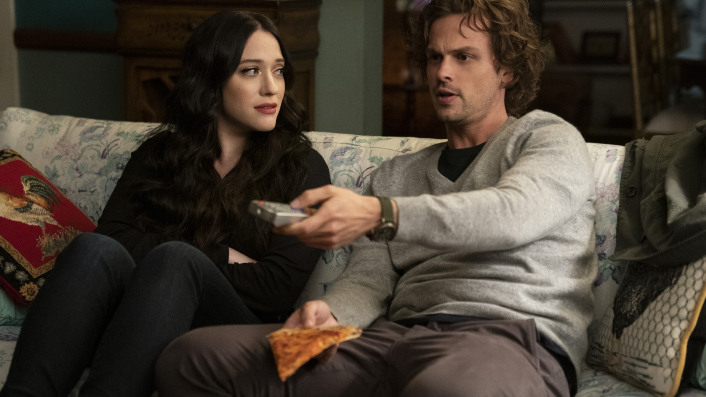
Kat Dennings leads Dollface as Jules, a young Los Angelino whose boyfriend of five years breaks up with her in the opening moments of the first episode. She quickly realises the extent to which her life has revolved around Jeremy (Connor Hines) for the previous half-decade, and how she has all but ignored her (formerly) best friends Madison (Brenda Song) and Stella (Shay Mitchell) throughout this time.
The show is built around Jules re-igniting those friendships, and realising how much fulfillment can come from them. Jules is no longer “Dollface” (Jeremy’s pet-name for her, and a term by she has been defined for too long), she is back to being Jules. And that’s a good thing.
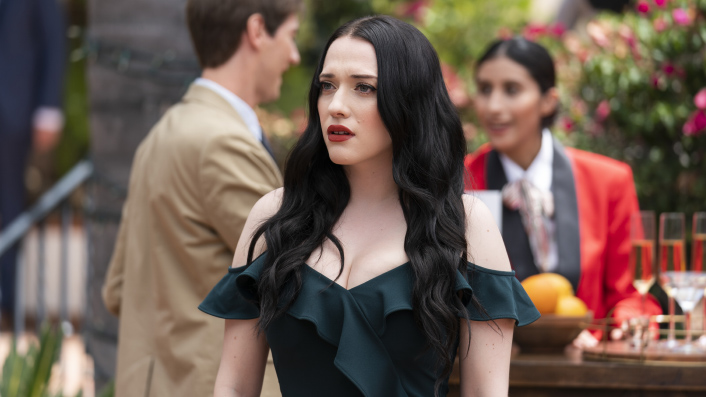
Dennings (also an Executive Producer on the show, alongside Margot Robbie) makes for a fantastic protagonist, returning to the kind of subtler acting style that marked her breakout performance in the 2008 indie rom-com Nick and Norah’s Infinite Playlist, which contrasts considerably with the role she has been primarily associated of late: gleefully crass waitress/budding entrepreneur Max in the gleefully crass sitcom 2 Broke Girls. Jules couldn’t be couldn’t further away from Max, highlighting Dennings’ heretofore relatively untapped range.
Song and Mitchell are both very high energy and highly entertaining as former besties who are understandably wary of Jules’ attempts to re-enter their lives after being abandoned for a dude all those years ago. Madison (a Type-A power publicist) and Stella (an LA scenester) push their characters beyond the stereotypes their designations offer up and texture the world nicely.
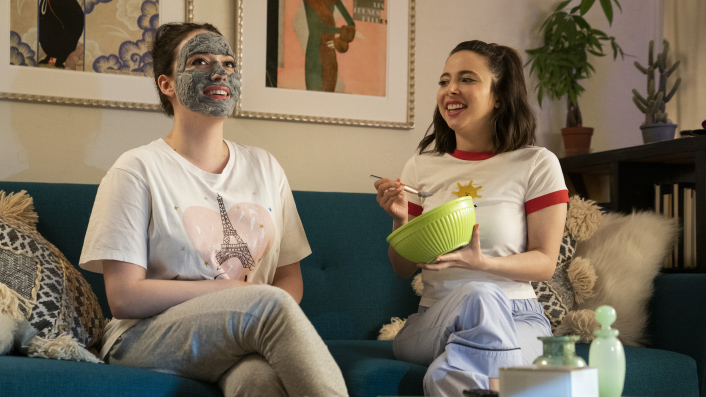
But the show’s secret weapon is Esther Povitsky as Izzy, a co-worker of Jules’ (at a Goop-like wellness company called “Woom”) who slowly becomes the fourth member of the group. Izzy is super weird (in an endearingly neurotic way) and provides many of the show’s best laugh-out-loud moments. In one scene, after being advised by Stella to try and appear more mysterious when she meets new people, a guy asks Izzy her name. “I don’t have one”, she replies with hilariously misguided allure.
Stand-up comedian Povitsky been working for a while (she previously played a similar character in a two-season show she co-created called Alone Together), but has yet to experience the kind of breakout she deserves—hopefully, Dollface makes that happen.

Dollface projects an authentic sense of how contemporary life in Los Angeles is overly informed by the shallowness of show business, and the series benefits from plenty of on-the-ground location shooting in that city.
Alongside that realistic grounding, the show also features ambitious stylistic flourishes, with at least one elaborate fantasy sequence per episode—examples include party pooper Jules going on trial for murder for “killing the buzz” at a party, and a scene where a massive faultline opens up beneath her when she feels torn between her two best friends.
One especially effective fantasy sequence occurs when the four girls, hoping to break away from the roles in the group they have been assigned (the fun one, the serious one, the weird one etc), see their lives play out as a traditional four-camera sitcom. These sequences, mostly literalized metaphors, reveal a self-awareness that makes Dollface more fun to watch than most modern comedies.
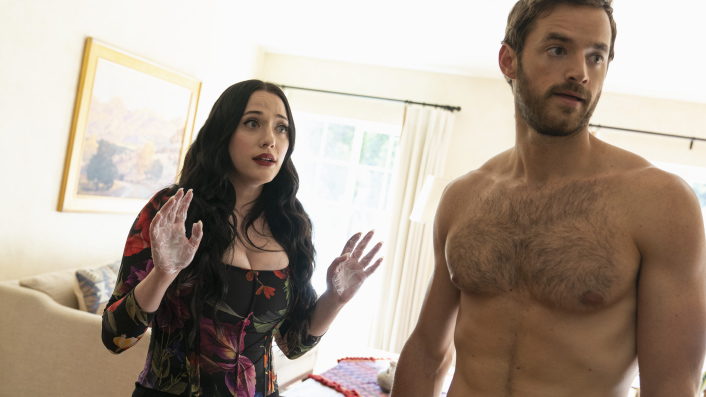
As mentioned earlier, man-drama isn’t non-existent in Dollface, but the show is gentle with it, and it is always secondary to the relationships between the four main characters. It also has fun getting in some sly digs at chronic dudeness: Jeremy’s cats are named after Entourage characters.
There are heaps of fun cameos too, with amusingly odd appearances from Este Haim, Dave Coulier, Joey Lawrence and Macaulay Culkin (Song’s real-life beau).
Too few shows care about the complexities of modern friendship, but Dollface shows just how funny and affecting this space can be.



